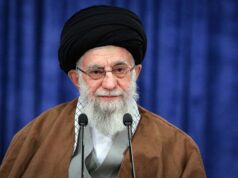Ten Russian undercover operatives were arrested in the United States Sunday following a multi-year investigation into their alleged spy ring. According to the FBI, the ten, who were posing as U.S. and Canadian citizens, are part of a clandestine network that used Cold War tactics such as encrypted Morse code messages, brush passes, and invisible writing to send intelligence back to the Russian government. An eleventh operative, believed to be the group’s leader, is currently missing after being released on bail in Cyprus. According to the complaint, the defendants sought to establish ties with congressional aides and scientists who worked on nuclear weapons development.
The arrests came just days after a warm Washington summit between President Barack Obama and Russian President Dmitry Medvedev. At the time, the two presidents repeatedly cited strengthening relations between the countries after what Obama called a “drift” under the previous administration. Obama called Medvedev a “solid and reliable partner” and repeated his commitment to “resetting” and “broadening” ties with Russia. Medvedev called for a “level of economic cooperation in line with the potential” of the two nations’ economies.

A court-artist’s impression of five of the 10 Russian spy suspects arrested in the U.S. Photo: AFP/GETTY IMAGES |
|
The case is spelled out in 55 pages of two federal complaints released Monday by the Justice Department. The alleged agents were reportedly sent to the U.S. years ago to blend in as ordinary American couples, raising their children and doing their day jobs. One of the alleged spies even approached Jim Robbins of the American Foreign Policy Council, attempting to penetrate the Washington-based think tank that has focused on Russia and China since the 1980s. While the agents are not being charged with espionage, the complaint makes the case against money laundering, failing to register as foreign agents, and other crimes. Years of FBI survellence has apparently paid off.
Nevertheless, Moscow has angrily denied the accusations. In response, Prime Minister Vladimir Putin said: “Back at your home, the police went out of control [and] are throwing people in jail. But that’s the kind of job they have,” he added. “The choice of timing was particularly graceful,” Russian Foreign Minister Sergei Lavrov told journalists sarcastically. The Obama administration, for its part, has reportedly downplayed the event, claiming the incident is merely a bump in the road on the way to better U.S.-Russian relations under his presidency. And the U.S. State Department says it has no plans to expel Russian diplomats from the country.
The Obama administration may believe that new era of of goodwill today exists between Washington and Moscow, but the love affair appears to be one-sided. Apparently, the “reset” button Obama thought he had pressed did not exist in Russia, which points to a constant in its foreign policy: America may have a new leader, but Moscow’s interests have remained the same. In the coming months, the greater question will be who and what did these agents infiltrate and did it make an impact the foreign policies of either nation. Only time will tell.





